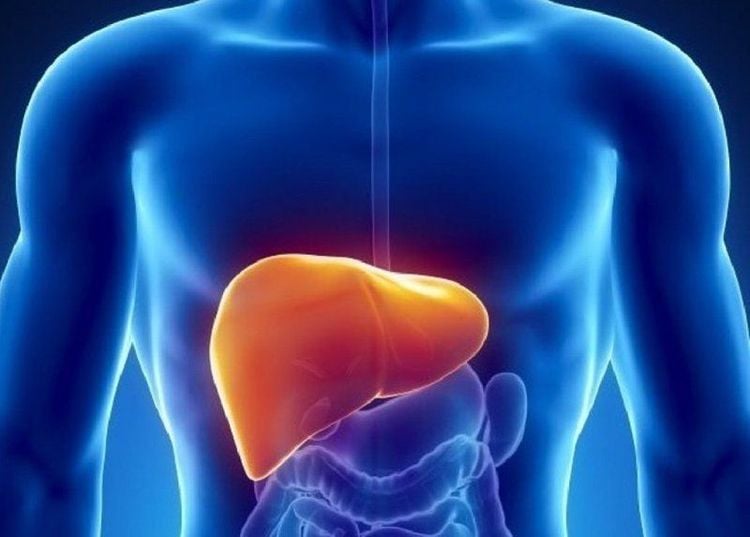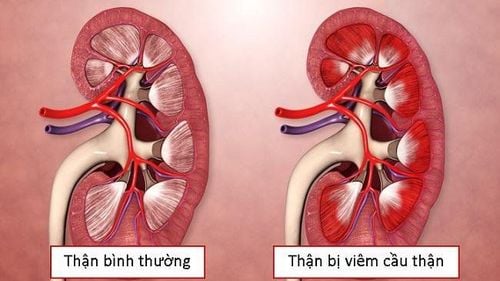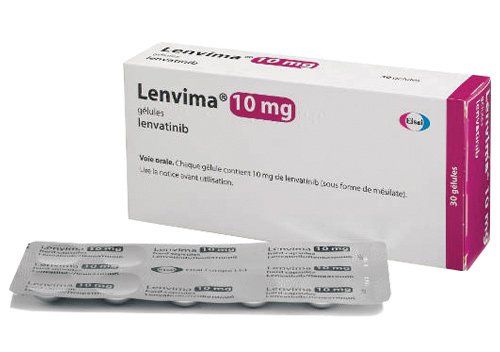This is an automatically translated article.
Viral infections that cause hepatitis B can lead to acute hepatitis B or chronic hepatitis B. If an adult is unable to clear the virus after six months, he or she will be diagnosed with chronic hepatitis B. And if left untreated, the patient can develop complications such as liver cancer and cirrhosis.
1. What is chronic hepatitis B? People who have tested positive for the hepatitis B virus for more than six months (after the first blood test result) are diagnosed with chronic hepatitis B. This means that the person's immune system has not been able to get rid of the hepatitis B virus, and it remains in the blood and liver.
The risk of developing chronic hepatitis B infection is also directly related to the age at first exposure to the hepatitis B virus:
90% of infected infants and children will develop hepatitis chronic hepatitis B in adulthood More than 50% of infected children (1-5 years) will develop chronic hepatitis B in adulthood Only 5-10% of infected adults will develop hepatitis B is chronic (that is, up to 90% of cases will go away). Therefore, when knowing that you have chronic hepatitis B, instead of worrying about whether chronic hepatitis B is dangerous, it is necessary to take active treatment measures that will improve the prognosis of the disease in the future.

Nhiễm trùng virus gây viêm gan B có thể dẫn đến viêm gan B cấp tính hay viêm gan B mãn tính
2. Is chronic hepatitis B dangerous? An estimated 1 million people each year globally, including at least 5000 people annually in the United States, die from chronic hepatitis B.
2.1. Positive Prognostic Factors Patients with hepatitis B e antigen (HBeAg) eradication and undetectable hepatitis B virus (HBV) DNA in repeated blood tests will have improved clinical outcomes. positive improvement, namely:
Slower progression of disease complications Prolong survival without complications Reduce rates of cancer and cirrhosis Clinical and biochemical improvement after cirrhosis disappears offset 2.2. Hepatocellular carcinoma People often worry “is chronic hepatitis B dangerous” because of fear of the possibility of cancer in the future.
Indeed, chronic hepatitis B infection is a major cause of approximately 50% of HCC cases worldwide. Studies indicate that hepatitis B virus DNA levels, which indicate viral replication, are a strong predictor of cirrhosis and HCC regardless of other viral factors. .
In addition, significant risk factors for liver carcinogenesis include:
Older age Exposure to aflatoxin Alcohol use Co-infection with hepatitis C and D Impaired immune status Genotype Mutation core and precore Cirrhosis Thrombocytopenia 2.3. Glomerulonephritis This is also one of the complications of chronic hepatitis B. However, the prognosis of kidney disease in hepatitis B is also related to several factors, such as age and response to treatment. Children with membranous glomerulonephritis will have a more favorable response to the disease than adults, and whites better than black and Asian patients.
About 30-60% of cases of kidney disease in hepatitis B are likely to go into remission on their own. However, the course of kidney disease in adults in virus-endemic areas may not always be benign. Furthermore, regardless of treatment, hepatitis B has a slow, but relentless clinical course; concurrently, approximately one-third of patients develop renal failure and require maintenance dialysis.

Viêm cầu thận là một trong các biến chứng của viêm gan B mạn tính
3. Is chronic hepatitis B curable? Knowing that you have a chronic hepatitis B infection can be upsetting to many people. Because most people have no symptoms and can be diagnosed decades after first exposure to the hepatitis B virus, being diagnosed with chronic hepatitis B can be both a shock and a surprise. doubt. Still, it's a good idea to stop worrying "Is chronic hepatitis B curable" because most people who get the disease have a good chance of living a long and healthy life.
There are now effective drug therapies that can control and even stop the hepatitis B virus from causing further damage to the liver. There are also promising new drugs in the pipeline that could provide cures in the very near future. Although the risk of developing serious liver disease or liver cancer is higher for people living with chronic hepatitis B than for people who are not infected, there are simple things people can do to help: reduce the risk of future complications:
Schedule regular visits every six months (or at least annually) with a hepatologist to have your liver health monitored through blood tests or diagnostics Picture. Talk to your doctor about whether treatment for hepatitis B is helpful in preventing serious liver disease or liver cancer. It is important to understand that not everyone is a good candidate for treatment; however, all people with chronic hepatitis B benefit from regular monitoring of the disease. Participate in liver cancer screening during routine visits because early detection means more treatment options and a longer life. Avoid or limit alcohol and smoking as both of these factors can cause a lot of further damage to the liver. Follow a healthy diet with lots of vegetables because fried, greasy foods will affect the liver. In conclusion, chronic hepatitis B is the leading cause of cirrhosis and hepatocellular carcinoma. This is a great disease burden not only for individuals but also for families and society. Therefore, instead of worrying about "can chronic hepatitis B be cured", patients need to be provided with a lot of information about the disease right from the time of diagnosis. In particular, the most important is that the patient must be advised that this is a blood-borne disease, so avoid infecting others; At the same time, family members should be tested soon for the hepatitis B virus. The best prevention is still vaccination.
Please dial HOTLINE for more information or register for an appointment HERE. Download MyVinmec app to make appointments faster and to manage your bookings easily.













